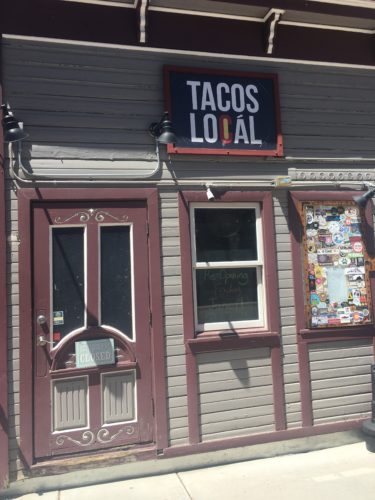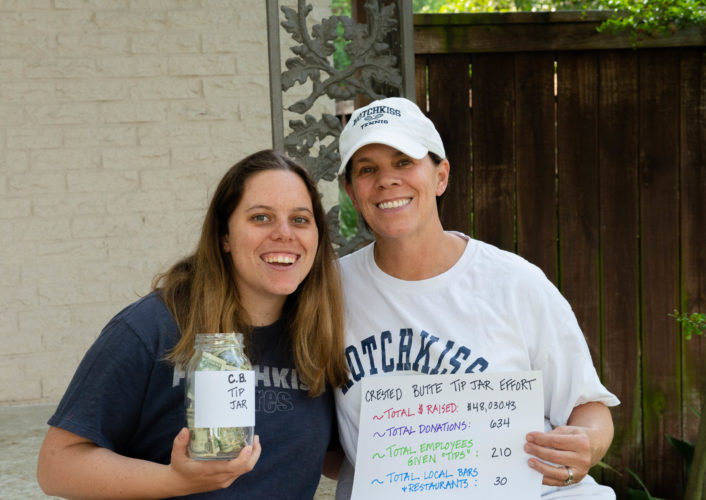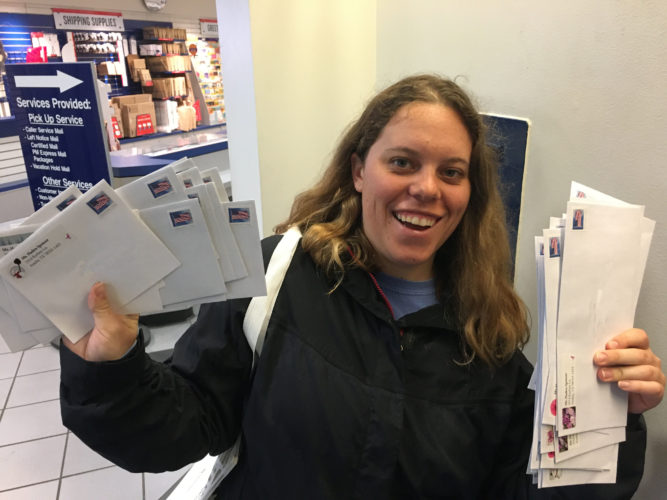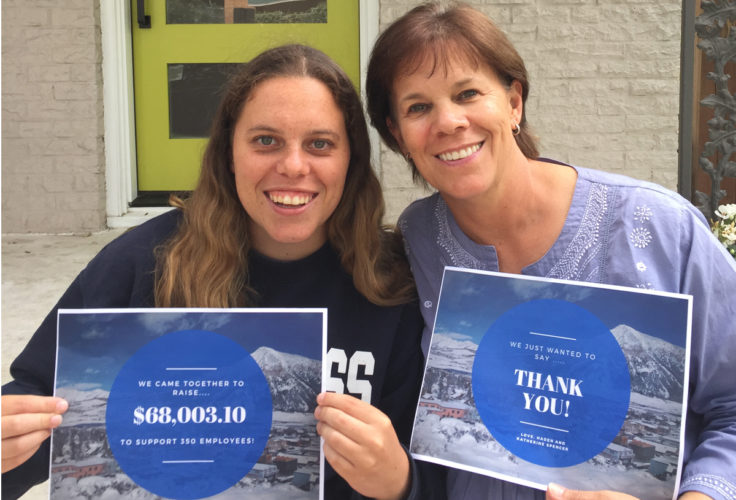Katherine Spencer’s spring semester went nothing like she’d planned. She was supposed to spend the semester in Madrid as her junior year study-abroad experience.
When plans changed, she didn’t slow down. Within days of returning to the US, Katherine created the Crested Butte Tip Jar. Using her network—and lessons from her WashU Olin classes—she launched an online giving platform that raised $68,000 to keep her town’s restaurant workers from going homeless or hungry.
“It was remarkable,” said Katherine, BSBA ’21. “We got these texts back from people saying things like, ‘I was able to buy my kids an Easter gift.’ Or, ‘you helped me pay my rent.’”
And it all started with a trip to a taco shop.
A town ravaged by a pandemic
On the afternoon of Monday, March 16, Katherine and her mom, Haden, walked through the streets of Crested Butte, Colorado. It was a gorgeous, warm day, “perfect for spring skiing,” Katherine remembered.
But as they passed through Elk Avenue, the main street in town, the streets were empty.

When they stopped in their favorite taco shop, Tacos Local, they learned they were the first customers of the day—a drastic difference for a town that had been preparing for cars and planes full of spring breakers. Thanks to the COVID-19 pandemic and resulting stay-at-home orders, spring break was canceled.
Wanting to do something to help this local business, they left a significant tip and went on their way.
Spreading the wealth
Both Katherine and Haden loved this town, where they’d spent much of Katherine’s childhood. And they realized there were plenty of people like them, who wanted to help the restaurants in this tourism-dependent town, but had no real way of doing so from afar.
That night, the Spencers sat at their kitchen table and got to work. “I called a friend who’s an engineer, and asked him to put a website together in 48 hours. We started calling every restaurant owner,” Katherine said. “It was a real startup mentality.”
After a few weeks of work, Katherine and Haden had raised and distributed $48,000 through the virtual tip jar. They felt shocked—and accomplished. By April 5, certain they’d kept the “jar” open long enough and raised far more than they’d intended, the Spencers shut down the fundraiser.

Over the next five days, they were bombarded with emails, texts and messages from people who still wanted to donate—so they reopened the jar, but set a final closing date of May 5.
In the end, when they closed the jar for good, the Spencers had raised $68,000 for the restaurant workers of Crested Butte. They saved family holiday celebrations, helped people keep their homes and kept countless restaurants from going under for good.
Putting it all into practice
For Katherine, this was a chance to make something meaningful happen in a semester that was nothing like she’d expected—but it also gave her the opportunity to put into practice what she’d learned in the classroom.
“We do so many Excel models in class,” she said—but like most students, Katherine wondered whether her coursework would really matter in the “real world.”
“Olin really focuses on teaching us how to use tools strategically,” she said. “I saw how that can really make a difference.” When their system of tracking donations and where they should go quickly became unsustainable, Katherine quickly pivoted and created a systematic Excel file that could manage the distribution of funds to restaurants and employees—just like she’d done in class.

“You’re sitting in class, going over Excel stuff, wondering if it’ll ever really be useful,” she said. “But I started to see how everything we do in the classroom has a real effect.”
Katherine also credits Olin for giving her the courage to embrace her entrepreneurial spirit. “Olin is a very innovative place,” she says. “I’m naturally very entrepreneurial. The ability to innovate and think on my feet is something that’s always been a part of me. But Olin gave me the confidence to do that.”
Katherine hopes her example can show other people that you don’t have to be a hero, or an expert, to make a real impact. “We had no idea what we were doing,” she says. “I hope people can imagine a mother and daughter team sitting at the kitchen table, with 36 hours to make this live, and think, ‘I could do the same thing.’ It doesn’t have to be something huge—but we can all do something.”

To learn more about the ways Washington University students, faculty, staff and alumni are caring for one another and our communities, visit #WashUtogether.



